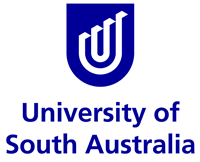If you’re seeking to advance your career in hydrology and keen to contribute to knowledge about flood estimation, the University of South Australia---Australia’s University of Enterprise is offering a research degree in partnership with the Department of Planning, Transport and Infrastructure (Department for Infrastructure and Transport), the Stormwater Management Authority (Department for Environment and Water), and the Attorney General’s Department, SA.
The procedures in the latest 2019 version of Australian Rainfall and Runoff – a guide to flood estimation (ARR 2019) have been reviewed by researchers Kemp and Hewa and have been found to have significant limitations in the accuracy of the estimates for South Australian catchments. In addition, researchers Kemp and Daniell noted that the runoff routing models in Australian Rainfall and Runoff are based on a 1960s methodology and that there has not been significant progress since. The accuracy of flood estimates needs to be improved.
South Australian flood hydrology is unique in Australia and requires a detailed investigation into all factors affecting flood phenomena and issues in the hydro-meteorological database before the process for improving flood estimation methods for South Australia can be identified and established. The objective of this project is to improve the estimation of flood magnitude in South Australia, not just by updating current procedures but examining and updating the fundamental methodologies, trends in hydrology, spatial and temporal variability of hydrological losses, rainfall patterns, land-use changes, and errors in runoff data collection procedures.
What you’ll do
In this research degree project, you will collaborate with a wide range of government and industry contacts working in the field. The candidate will compile a database for SA catchments and develop algorithms to improve the modelling of the rainfall–runoff translation process. In undertaking this project, you will develop extensive skills in using GIS, MATLAB, R-programming, rainfall–runoff modelling tools and statistical software packages such as SPSS. There is potential to collaborate with our industry partners through an internship and participate in related workshops and national and international conferences, if travel permitted, such as the Hydrology and Water Resources Symposiums.
Where you’ll be based
You will be based within UniSA STEM. Technology is evolving more rapidly than we would have ever thought possible. UniSA is meeting future challenges through cutting-edge research and the education of tomorrow’s professionals. We link engineering, mathematics, science, defence, cybersecurity, construction management, environmental science, aviation, information management, information technology, and project management, harnessing the connections across disciplines to bring big ideas to fruition. In an information-rich world, our people think big, combatting problems, testing solutions and making data-driven decisions. Our graduates are entrepreneurs and trailblazers, who design and build the world they want to live in.
Supervisory Team
Dr Guna Hewa Alankarage - Principal Supervisor
Dr David Kemp - Co Supervisor
Dr Baden Myers - Co Supervisor
Dr John Awad - Co Supervisor
Mr Martin Fidge (Department for Infrastructure and Transport) – Industry advisor
Mr David Trebilcock (Department for Environment and Water) – Industry advisor
Ms Amber Webster (Attorney General Department) – Industry advisor
Eligibility and Selection
This project is open to application from domestic applicants. Applicants must meet the eligibility criteria for entrance into a PhD.
Additionally, applicants must meet the Project-specific Essential Selection Criteria:
- First-class or second class (upper) achievements in undergraduate degree and a postgraduate degree in a related field
- Professional experience and Research Preparedness: a cover letter describing details of the most recent professional experience relevant to intended research study and how previous research/study equips you to undertake the proposed research
- Research Publications: a CV/Resume listing publications and other research outputs.
- Referees: two professional or academic reference reports.
- English Proficiency (international candidates only) objective test results (IELTS, TOEFL, etc), records of prior study in English, or alternative means.
Additionally, applicants must meet the Project-specific Desirable Selection Criteria:
- Ability to use GIS and knowledge in using RS data
- Skills in using a programming language (preferably R programming)
All applications that meet the eligibility and selection criteria will be considered for this project. A merit selection process will be used to determine the successful candidate. The successful applicant is expected to study full-time, and to be based at our Mawson Lakes campus in the north of Adelaide.
Essential Dates
Applicants are expected to start in a timely fashion upon receipt of an offer. Extended deferral periods are not available. Applications close, Sunday 23 January 2022.
Principal Supervisor: Dr Guna Hewa Alankarage

 Continue with Facebook
Continue with Facebook



